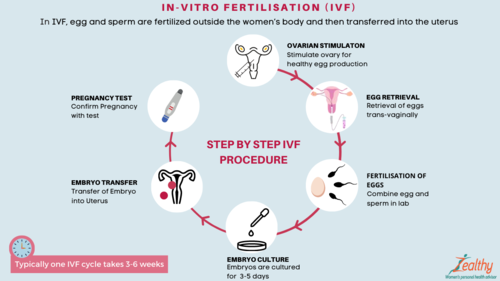In a historic medical achievement, eight healthy babies have been born in the United Kingdom using a pioneering IVF technique that involves DNA from three individuals. This groundbreaking approach, aimed at preventing inherited mitochondrial diseases, marks a major milestone in reproductive science and genetic medicine.
The babies—four boys and four girls—were born following a closely monitored clinical trial conducted at the Newcastle Fertility Centre in northeast England. The trial, a collaboration between Britain’s Newcastle University and Australia’s Monash University, is the first of its kind to demonstrate successful live births using this technique. The results were published this week in the New England Journal of Medicine.
The Science Behind the Procedure

Mitochondrial diseases are inherited genetic disorders that affect the tiny energy-producing structures inside cells known as mitochondria. These conditions are passed down exclusively through the mother’s mitochondrial DNA (mtDNA) and can lead to severe, often fatal symptoms such as muscle weakness, neurological damage, organ failure, and developmental delays. There is currently no cure.
The procedure used in this trial is known as mitochondrial replacement therapy (MRT), or more specifically, maternal spindle transfer. It involves extracting the nucleus from the mother’s egg—containing the vast majority of her genetic material—and transferring it into a donor egg that has had its own nucleus removed but retains healthy mitochondria. This reconstructed egg is then fertilized with the father’s sperm through standard IVF.
The resulting embryo carries 99.9% of the genetic material from the mother and father, and a very small portion—around 0.1%—from the donor, specifically in the form of healthy mitochondrial DNA. This has led to the media nickname “three-parent baby,” though the vast majority of the child’s DNA remains from their biological parents.
Promising Results
Among the 22 women who underwent the procedure between 2017 and 2020, 13 embryos were implanted, leading to eight successful births. The children, now aged between six months and over two years, are reported to be healthy and developing normally.
Importantly, the level of mutated mitochondrial DNA in the children was dramatically reduced. For six of the babies, researchers found that the level of defective mtDNA was reduced by over 95%, and in some cases, to undetectable levels. For the other two, levels were reduced by 77–88%, still well below the threshold (typically around 60%) where disease symptoms are known to emerge.
Ethical Debate and Global Restrictions
While hailed as a potential lifesaver for families carrying mitochondrial mutations, the technique remains controversial. Ethical concerns revolve around the manipulation of human embryos and fears of opening the door to genetic selection or so-called “designer babies.” Others worry about the long-term effects of carrying DNA from a third person, even though it comprises a tiny fraction of the genome.
Due to these concerns, mitochondrial replacement therapy is only approved in a few countries. The UK became the first country to legalize it in 2015, following extensive public and parliamentary debate. The Human Fertilisation and Embryology Authority (HFEA) strictly regulates its use, approving it only in cases where there is a serious risk of passing on mitochondrial disease.
The United States currently bans the clinical use of MRT, although research is permitted under certain conditions. France, Germany, and many other countries also prohibit the practice.
Looking Ahead
Researchers involved in the trial are cautiously optimistic. The health of the eight children will continue to be monitored for years, as it remains to be seen whether small amounts of defective mtDNA might increase over time—a phenomenon known as “mitochondrial reversion.” This could theoretically lead to symptoms appearing later in life.
Still, the success of the trial is seen as a major leap forward.
“This technique offers hope to hundreds of women in the UK and thousands globally who are at risk of passing on devastating mitochondrial diseases to their children,” said Professor Doug Turnbull, a leading neurologist at Newcastle University who has been a central figure in developing the method.
For families who have endured the heartbreak of losing children to these disorders, the opportunity to have a genetically related child free from disease is life-changing.
“This is not about enhancing babies,” said one bioethics expert. “It’s about giving parents the chance to have healthy children. And that is a powerful thing.”
Source Aljazeera



